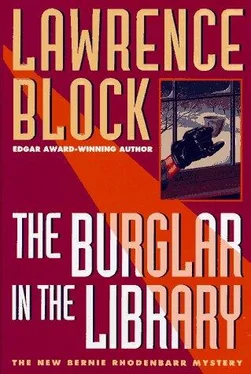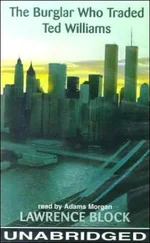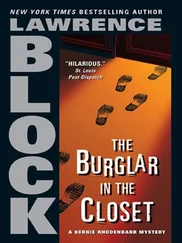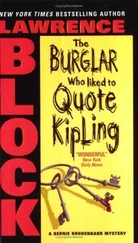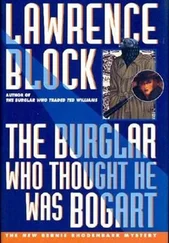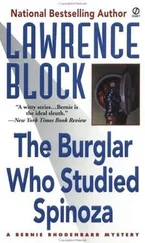After all that, I was expecting dinner to be a disaster-translucent roast beef, say, and vegetables boiled into submission. The outlook improved, though, when we got to the bottom of the stairs and met a woman with feathery blond hair, plump chipmunk cheeks, and an air of radiant well-being. “The Rhodenbarrs,” she said, beaming, and who could presume to correct her? “I’m Cissy Eglantine, and I do hope you’re happy in Aunt Augusta’s Room. I think it’s quite the coziest, myself.”
We assured her it was charming.
“Oh, I’m so glad you like it,” she said. “Now we’re getting a late supper laid for you in the dining room, but I wonder if you might want to stop in the bar first? Nigel’s especially proud of his selection of single-malt Scotches, if you have any interest at all in that sort of thing.”
We admitted to a sort of academic interest and hurried off to the bar. “The trouble with trying to compare different whiskies,” Carolyn said when we finally moved on to the dining room, “is that by the time you’re sipping the fourth one, it’s impossible to remember what the first one tasted like. So you have to go back and start over.”
“And before long,” I said, “you have trouble remembering other things. Like your name.”
“Well, nobody else remembers my name, so why should I? I just got here an hour ago and already I’ve been Ms. Runcible and Mrs. Rhodenbarr. I can’t wait to see what the future holds. What’s the matter?”
“Nothing’s the matter,” I said. “Something smells terrific.”
And so it was. A rich and savory soup, a salad of romaine and Boston lettuce with walnuts and dill, and a thick slab of prime rib flanked with crisp little roasted potatoes. The waitress, a skittish country girl who might have been Orris’s sister (or his wife, or both), brought us mugs of brown ale without asking, and filled them up when we emptied them.
Dessert was some sort of fruit cobbler, topped with what Carolyn said had to be clotted cream. “Look at this,” she said. “You could float a scone on it. You could float the Stone of Scone on it. Bern, forget everything I said.”
“Starting when?”
“Starting when we got here. You want to know something? I don’t give a rat’s ass if the place is haunted. If the ghost’s got any sense he won’t come anywhere near our room, anyway. He’ll hang out in the kitchen. Bern, this is one of the best meals I’ve ever had in my life.”
“You know what they say. Hunger’s the best sauce.”
“I was hungry enough to eat my shoes,” she said, “I’ll admit it, but it was still an incredible meal. Can you believe it? The coffee’s good. I meant to order tea, because everybody knows the English can’t make a decent cup of coffee. But this is great. How do you explain that, Bern?”
“Maybe they didn’t come straight here from England,” I suggested. “Maybe they stopped off in Seattle.”
“That must be it,” she said, and wiped her mouth with her napkin. “Look at me, Bern. A couple of pops and a decent meal and I think I died and went to heaven. I’ll tell you something. I like it here. I’m glad we came.”
After dinner we drifted from room to room, getting our bearings on the first floor of Cuttleford House. There was, God knows, an awful lot of it, and one room just sort of led to another. We started out in a sort of sitting room called the East Parlour, and I might have taken it for the library if I hadn’t already seen the Great Library in the brochure. The parlor had floor-to-ceiling bookshelves on either side of the fireplace. The other walls sported memorabilia-crossed spears, West African ceremonial masks, and the stuffed head of one of those crossword-puzzle animals. An oryx, say.
There were more books on a breakfront, braced by a pair of bronze Abraham-Lincoln-seated-and-looking-pensive bookends, and there were revolving bookcases flanking the floral-patterned sofa.
“There are books all over the place,” Carolyn murmured. “You saw the bookcase in our room, didn’t you?”
“Uh-huh. It reminded me of my bargain table.”
“No Big Sleep, huh?”
“Just a large yawn. Mostly late-model paperbacks. Last year’s best-sellers. The kind of book you take along to a resort and leave behind when you go home.”
“If you managed to finish it.”
“Or even if you didn’t,” I said.
We broke off to get into conversation with Colonel Edward Blount-Buller, a florid-faced gentleman in moleskin trousers and a tweed Norfolk jacket. We’d been introduced to him in the bar before dinner, and he’d evidently lingered there amidst the single-malt Scotches. Now he was moved to discourse upon the inherent nobility of the hunting trophy on the opposite wall.
“It’s the horns, don’t you know.” We must have looked puzzled. “The horns, the horns,” he said. “The long graceful tapering horns. What would he be without them, eh?” He held up a finger, its knuckle knobby with arthritis. “I’ll tell you,” he said. “Be a bloody nanny goat.”
“I’d rather be a live nanny goat,” Carolyn said, “than have some jerk shoot me and stick my head on his wall.”
“Ah,” he said. “Well, you’re a woman, eh?”
“What’s that supposed to mean?”
“No slight intended, I assure you. But the gentler sex has a more practical nature, takes short views. Better to munch grass and give milk than to take a bullet, eh?”
“If those are the choices,” she said, “I wouldn’t have to spend a long time thinking it over.”
“Without his horns,” the colonel said, “our springbok would have gone on grazing until age made him easy prey to a lion or a dog pack. He’d have left his bones bleaching in the hot African sun. The world would have long since forgotten him.” He gestured at the mounted head. “Instead he lives on,” he announced, “countless years past his ordinary lifespan. It’s immortality of a sort, wot? Not quite the sort you or I might choose, but quite the best available to him.”
“A springbok,” I said.
“And a fine one, sir, wouldn’t you say?”
“You’re sure it’s not an oryx?”
“Hardly that.”
“Or an ibex,” I suggested. “Or an okapi, or even a gnu.”
“Fine beasts, all of them,” he said. “But our friend here is a springbok. You have my assurance of that.”
In the Sitting Room, the walls were given over to framed Ape and Spy caricatures from the old Vanity Fair, with not a single stuffed head to be seen. There were books, though, filling a three-tiered set of glassed-in shelves and propped between a pair of sailing-ship bookends.
I had a quick look at the books while Carolyn leafed through a year-old copy of Town amp; Country. When I dropped into the chair next to hers she closed the magazine and looked at me.
“Better books,” I said. “Hardcover fiction, most of it between fifty and eighty years old. Some mysteries, all by authors that nobody reads nowadays. A lot of general fiction. James T. Farrell, one of the books in his Danny O’Neill tetralogy. And Mammonart, by Upton Sinclair.”
“Are they valuable, Bern?”
“They’re both important writers,” I said, “but they’re not very actively collected. And of course the dust jackets are long gone.”
“What do you mean, ‘long gone’? For all you know they were there until five minutes ago.”
“You’re right,” I said. “I jumped to a conclusion, based on the fact that all but two or three of the books in the case are missing their jackets.”
“Then it’s a good thing they’re inside, Bern. In this weather, they’d freeze their flyleaves off.” She pointed at the window. “Still coming down,” she said.
Читать дальше
